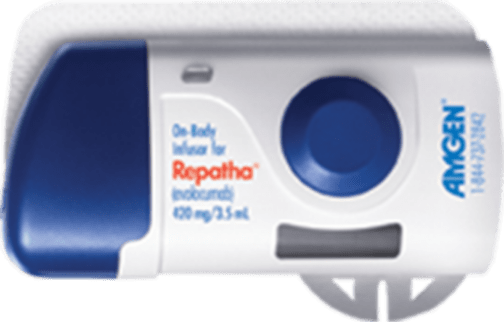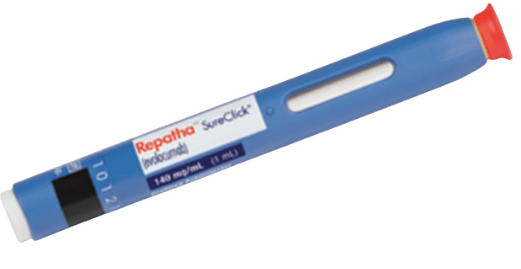Amgen has made the decision to discontinue the Repatha® Pushtronex® System.
This decision was made globally to uphold the high standards that Amgen has set to enable the most optimal experience for patients with cardiovascular disease and hyperlipidemia.
As part of our long-term planning, we conducted an evaluation of the device presentations in the US. Historically, there have been 3 device presentations of Repatha®
- 140 mg/mL single-dose prefilled SureClick® autoinjector
- 420 mg/3.5 mL single-dose Pushtronex® system (on-body infusor with prefilled cartridge) (discontinued)
- 140 mg/mL single-dose prefilled syringe
A new device presentation for Repatha® has been added in the US:
- 140 mg/mL prefilled single-dose syringe NDC: 72511-0501-01 not made with natural rubber latex. A new prescription is required.
A limited supply of Pushtronex® system is available for patients with a latex allergy through certain wholesalers. If these patients are unable to fill their Pushtronex® system prescription, they are encouraged to use the new prefilled syringe not made with natural rubber latex until the SureClick® autoinjector not made with natural rubber latex is available (limited supply April 2025 full supply expected by summer 2025).
Transitioning Patients to a New Device with a Prescription
There are no concerns about the Repatha® drug product, efficacy, or patient safety. Alternative presentations are available, and Amgen has sufficient product to meet the demand of patients transitioning from the Pushtronex®
system.
The Repatha® SureClick® Autoinjector is still active and available and will be appropriate for most patients.* However, patients will require a new prescription to transition to a new device.


